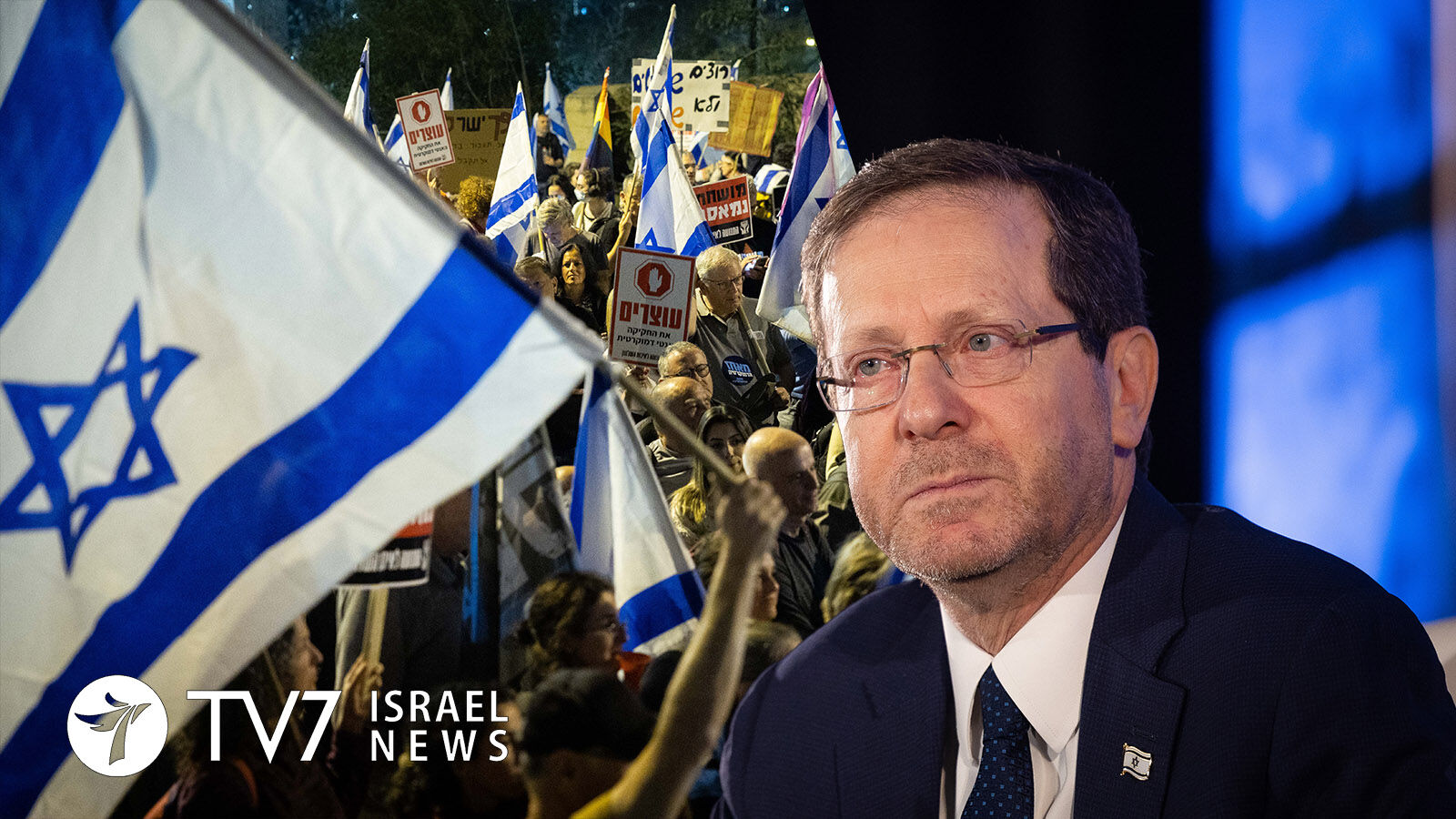The statements come amid deep divisions in Israel over plans by the government of Prime Minister Benjamin Netanyahu to overhaul the judiciary.
By Erin Viner
100 heads of authorities attended an emergency meeting convened by Israeli President Isaac Herzog aimed at reaching agreement over proposals that have split the country and led to mass nationwide protests.
“We are closer than ever to the possibility of an agreed outline. There are agreements behind the scenes on most things,” Herzog said in a statement, without providing further details.
President Herzog called on members of the ruling coalition and their political opposition to “put the country and the citizens above everything else” to implement his plan, which he said is designed to satisfy both sides.
Opposition leaders Yair Lapid and Benny Gantz issued a joint statement commending President Herzog’s attempts to reach a compromise, while demanding that Netanyahu halt the legislation process to allow for “honest and effective dialogue.”
“Israel is on the brink of a national emergency – and Netanyahu refuses to stop,” underscored a message they posted on Twitter.
Lapid has previously called for compromise talks and a freeze of the legislation for 60 days, although Netanyahu insists he would only agree to negotiations without preconditions.
The Israeli Premier did not immediately respond to the latest effort by President Herzog, who last month floated a compromise plan to spare the country what he described as a “constitutional collapse.”
In recent days, all of the 10 living former Israeli Air Force (IAF) Commanders sent a written notice to Prime Minister Netanyahu and Defense Minister Yoav Gallant to voice “deep concern” and warning of the “serious and tangible danger posed to the national security of the State of Israel” posed by the government’s judicial revisions.
The letter was sent just one day after 37 out of 40 IAF reserve pilots and navigators of an F-15 squadron refused to participate in a training exercise in protest. Netanyahu criticized the declaration, stating, “There is room for protest, there is room for disagreements, for expressing opinions, but there is no room for refusal.”
Financial markets rose sharply in reaction to Herzog’s announcement. Since the proposals were introduced in late January, the shekel has slumped against the dollar, alarming investors wary that Israel might be joining the growing list of emerging markets taking a more authoritarian stance to decision making. By last week, the shekel had fallen nearly 10% against the US currency in just one month, and was trading at a three-year low.
Optimism over a possible resolution of the controversy sent the shekel up 2% on Monday to 3.59 per dollar – its strongest level since 21 February. Similarly, Tel Aviv share indexes were up 1.5% and government bond prices were also up close to 1%.
Weekly and increasingly raucous nationwide demonstrations erupted just days after the Netanyahu government took office, following announcement by Israeli Justice Minister Yariv Levin of a sweeping “reform of governance” that will limit Supreme Court rulings against government moves or Knesset laws, while increasing politicians’ input over nominations to the bench.
Israel’s right-wing 37th government, an alliance between the Premier’s Likud party with several smaller religious and hard-right nationalist factions, asserts it holds the mandate for changes, deemed necessary to curb overreach by activist judges and restore balance between the legislative, executive and judiciary..
Prime Minister Netanyahu, who is himself on trial on corruption charges which he denies, has dismissed the protests as refusal by leftist adversaries to accept the results of the 1 November’s election which resulted in one of the most right-wing governments in Israel’s history. He has ardently defended the judicial overhaul.
